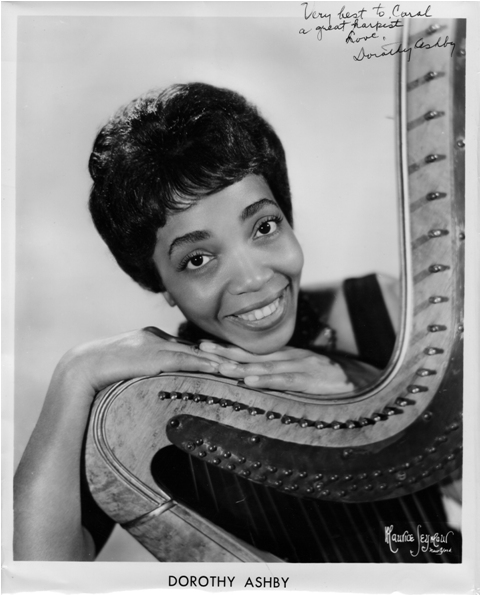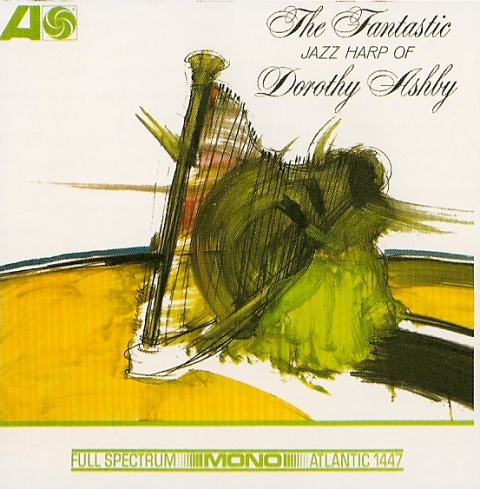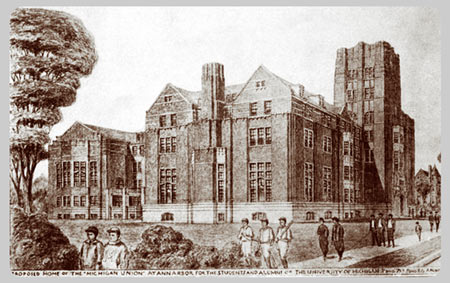An Unexpected Open Door
Theme Songs Page | Previous Theme Song | Next Theme Song
An Unexpected Open Door
Essence of Sapphire, by Dorothy Ashby (1965), encountered 1966
Buy it here
When you’re young, at least if you’re lucky enough to be born and brought up a solid citizen of middle-class America,[1] your life is formally divided into predictable stages, sectioned off by school years. Since I came up, the invention of middle school has moved the boundaries slightly, but in my youth, you knew that, after six years of grade school, you’d be moving on to junior high, and that after two years of that, you’d be moving on again to high school. And then came a really big divide, between high school and what lay beyond: college, in the case of pretty much everyone in my school.
Final Mastery
Now, if you continued to be lucky, and you’d done reasonably well in mastering those stages, you had the leisure to finish up each one and look forward to the next with a sense of satisfaction mingled with only just enough apprehension of uprootedness to come to give the moment some savor. And that was how I felt about and during my senior year.
Of course there was a geographic component to it too. I knew I was leaving Ann Arbor. I knew it was unlikely I would ever live there again after that. That final year, therefore, was not only consciously devoted to completing the high school life with a bang,[2] but also, only a little less consciously, my mastery of my hometown.
I’ve written elsewhere in this blog about my sense of gratitude at washing ashore in Ann Arbor after a complicated and chaotic, if exciting, first five years. But that had been almost thirteen years earlier. Remembering having lived in Vienna, and having the contrast of New York frequently before me, courtesy of my dad and stepmom, I understood that this town of less than 100,000 population was a small corner of the world. I was determined to go to bigger, more central places.
Yet I sensed strongly that I had not quite exhausted the town yet. And before I gave up my citizenship papers, I wanted to know it more completely. So without any formal program, maybe without ever saying to myself that that was what I was doing, I set out to explore harder. I had a bike I could ride anywhere, and a town in which pretty much nothing was too far away to walk.
I could devote a lot of space here to the wonders of the town when you really looked: the swimming pool nuclear reactor with the glowing blue heart I and friends twice wangled tours of, the other pool in which they tested ship hulls, the pathology museum with the pickled diseased body parts, the fields I walked and cycled out into further than ever before, canoeing under bridges, walking along rail lines. But you, gentle reader, would lose interest long before I even got going.
This is about one discovery that will have to stand for all. It happened one day when I was nosing around the Michigan Union.
The Unmasterable Union
I don’t know if you are the kind of person who loves places, or stories about places that are too large and/or complicated and/or inaccessible to be known completely. I know I am. For instance, I thrilled to the parts of C.S. Lewis’ The Magician’s Nephew describing a dark passageway connecting the garrets of a set of rowhouses, that could lead into any house in the row, in which the characters never quite locate themselves with confidence.[3] The Union was like that in real life. It had been a constant in my life from the moment I’d set foot in Ann Arbor, but I’d never really mastered its crenellations. You can get a sense of that from this antique postcard,[4] drawn before the 1954 addition that just complicated the existing architecture.
I started going there with my stepdad to get haircuts in the basement barbershop. Later, when my father came to town to visit, he’d often stay in the hotel operation run there, and I’d see a completely different set of features: a swimming pool where you wore no swimsuit,[5] a bowling alley (which you could only get to by means of some kind of trick with the stairs that I had never reliably mastered), dining rooms. In the year I’m speaking of now, I’d begun to frequent the pool hall at the top of the tower, often with my friend Keith, where I learned almost everything I know about the game. Through all these visits, I came to the understanding that the only the parts of the building I really understood were at the front, near the main entrance where John Kennedy had first announced the idea of the Peace Corps. This may have been partly owing to the subtraction of various features. For instance, there’s no bowling alley or swimming pool today; they may have been removed at around this time, maybe just to fake me out. Or it may just have been my not coming to grips with the layout.
Dorothy Ashby
One day, however, I was there on my own. I heard music from a room, one of the public rooms on the main floor with glassed doors and windows. In the spirit of inviting myself in wherever I felt like, I opened the door and walked in. There was a three-piece jazz combo playing; I’d heard jazz before, as I’ve recorded, but nothing like this. The leader was an African-American harpist, with drums and either a bass or piano, I don’t remember which now for sure. (I think bass.) I had never heard a jazz harp before, and I was entranced. It was so powerful, so elegant.
The Beatles had recently come out with their second movie, Help!, which I knew had earlier been tentatively titled Eight Arms to Hold You. That was kind of the impression I got of Dorothy Ashby’s harp – that she had some abnormal number of fingers and strings to syncopate with. It was a preternatural experience. Which, come to think of it, is exactly the kind of thing orchestrators rely on harps to convey anyhow.
 I knew immediately I had stumbled into something special. I can remember nothing about the audience, none of the songs she played. I just knew that I was hearing something wonderful and unusual. I was willing to bet that none of my friends, none of my parents, none of my parents’ friends, had ever heard a jazz harp being played. I remember being struck by the elegant appearance of Ms. Ashby as well, though I cannot picture how she was dressed. This photo, one of the two that seems to be widely circulated,[6] gives no clue. I do remember sitting there to the end. My wanderings around town trying to find something new were over for the day.
I knew immediately I had stumbled into something special. I can remember nothing about the audience, none of the songs she played. I just knew that I was hearing something wonderful and unusual. I was willing to bet that none of my friends, none of my parents, none of my parents’ friends, had ever heard a jazz harp being played. I remember being struck by the elegant appearance of Ms. Ashby as well, though I cannot picture how she was dressed. This photo, one of the two that seems to be widely circulated,[6] gives no clue. I do remember sitting there to the end. My wanderings around town trying to find something new were over for the day.
I know as well that I shortly afterwards went and bought her album, the cover of which is pictured above. It was probably a bit of a rarity even then, but less so in that neck of the woods, because, as I later learned, Ms. Ashby was a Detroit radio personality – and not only a radio personality, but active with a theater troop seeking to bring black theater to that town. And of course I listened to it over and over.
I tried sharing it with friends, but it wasn’t easy. None of my contemporaries still living in Ann Arbor were into jazz at all.[7] My good friend Stefan had a bent toward classical, though with an open mind about jazz (he would in a couple of years introduce me to Pharoah Sanders’ Karma, a transdendently great album) – but he was already gone, away at college in Boston. It was, so to speak, my little secret, whether I wanted it to be or not.
When I hear it now, after all these years (recently reissued on a CD with a Junior Mance album), two things strike me. First, it’s as good and as fresh today as it was back in 1966. Dorothy Ashby herself is gone, but if she had never done anything else in her busy life except cut this LP, she would have had nothing to apologize to her maker for. Second, The Fantastic Jazz Harp of Dorothy Ashby reminds me of my time for exploring and finding new things, even in a town I knew pretty well. I wanted to locate things that no one else knew were there, not just my parents but my contemporaries. There’s a line of Byron’s, “among them, but not of them,”[8] that sums up what I was striving to be (at least that part of the time that I wasn’t trying very hard to be one of “them” – hey, I was a teenager!). Developing a taste for something obviously objectively very good, not just an affectation, which no one else I knew even knew about, that was one way to do it.
I’ve selected out Essence of Sapphire from among the ten cuts of the album, although really the whole album qualified as a Theme Song in my life. I chose this track because it is the most stripped-down one in the album in terms of personnel: just Ashby herself, Richard Davis on bass, and Grady Tate on drums, quite possibly the very combo I saw playing that day at the Union.[9] It conveys the essence of Ashby at that moment.
It conveys something about me at that moment, too. Ashby was nearly unaccompanied, and so in a sense was I. You may look at the endnote to this posting below in which I talk about what I was doing during my last year of high school and it may seem as if I was fully involved with my little community. And it’s true, and yet somehow untrue too. I was spending a lot of time in my own head then. I don’t mean that that was a bad thing. I was getting ready for a divorce from the whole environment that had nurtured me for so long. That took some mental preparation.
Finding music to nurture me, music that no one around me had had a hand in exposing me to, was a useful way to prove to myself that I was capable of, and ready to, do this.
[1] Let no one think I’m unaware of how fortunate I and my contemporaries were, growing up in a pocket of prosperity that was unprecedented in world history for its size and security. What I took for granted as a norm was very rare amidst the times and places of this world. Even my parents, with their tales of the Depression, were talking about a foreign country I had never seen and never expected to visit. What I talk about above does not absolutely depend upon one’s growing up in that kind of world, but the further one gets from that kind of prosperity and security, the less likely such simple and mostly pleasant emotions are going to be.
[2] In my senior year, I appeared in the school play and the Christmas play, took a graduate course in Latin at the University, managered (given that there was a coach and an assistant coach, saying “managed” seems a bit misleading) the conference champion track team, continued to write a column in the Ann Arbor News, and managed (here the verb seems appropriate) the campaign of the winning candidate for the following year’s student council presidency. I also applied to several exclusive universities and got into one, going through the standardized testing and the interviews one went through and still does in such pursuits.
[3] That setting is closely akin to the Professor’s home in Lewis’ The Lion, The Witch and the Wardrobe, in which tricks of the layout make it impossible reliably to avoid running into visitors one is fleeing, to Borgesian labyrinths, to the chateau whose layout is unknowable in Last Year at Marienbad, or the strange stairway of flexible length in Arabesque.
[4] Source: http://umhistory.dc.umich.edu/mort/central/west%20of%20state/Michigan%20Union/index.html .
[5] This in keeping with the fact that the institution had grown out of an all-male organization. The women had their own single-sex club and a facility that was almost as impressive, the Michigan League.
[6] Source: http://www.electrical.com/phpBB3/viewtopic.php?f=4&t=48026&p=1067096 .
[7] Well, almost none. My high school colleague Bob Hunsche introduced me to Dave Brubeck, as I shall recite in a later piece. But we didn’t really talk about jazz together for some reason.
[8] I knew the line then, though not the poem, because I knew Eugene O’Neill’s A Touch of the Poet , which meant that I also understood that, in nurturing a vision of himself informed by that line, the central figure, Con Melody, was entertaining a false and unearned sense of specialness. In other words, I understood that there was a kind of phony grandiosity attached to the phrase, and the lines surrounding it, all of which Melody recites in the play with reference to himself:
I have not loved the world, nor the world me; I have not flattered its rank breath, nor bowed To its idolatries a patient knee, – Nor coined my cheek to smiles, nor cried aloud In worship of an echo; in the crowd They could not deem me one of such; I stood Among them, but not of them…Source: http://www.gutenberg.org/dirs/etext04/chpl10h.htm . So if I applied the line to myself, and let’s face it, I did, I nonetheless did so knowing the spiritual dangers and striving to avoid them. A good Catholic schoolboy is not going to grow up fancying himself as unfettered the demands of conventionality as did George Gordon, Lord Byron. Thank goodness!
[9] Although I understand that her husband John Ashby was frequently her bassist.
Copyright (c) Jack L. B. Gohn, except for commercial images

